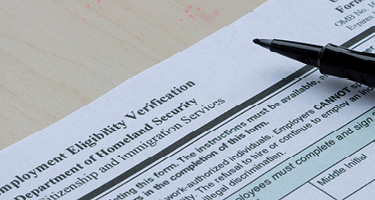The EEOC first issued Enforcement Guidance: Unlawful Disparate Treatment of Workers with Caregiving Responsibilities in May 2007. Given that the EEOC issued some new guidance regarding pandemic-related caregiver discrimination, it is clear that caregiver discrimination is on the EEOC’s agenda.
The EEOC assumes (probably rightly) that caregiving obligations are more likely to fall on women, so discrimination against caregivers often looks like sex discrimination. The EEOC’s guidance (both old and new) is packed full of good practices to follow (both during and after the pandemic). So, what does the EEOC want you to know about caregiver discrimination under federal employment discrimination laws?
- Do not make assumptions about who may have caregiving responsibilities. Assuming that women need to be home with kids who are out of school and men do not is, at its core, sex discrimination. If you provide telework, modified schedules or other benefits to employees with school-age children due to school closures during the pandemic, do not treat men differently than women (or make any other distinctions based on EEOC-protected characteristics). For example, under Title VII, you cannot treat female employees more favorably than their male counterparts because of a gender-based assumption about who may have caregiving responsibilities for children. If you offer telework or flexible schedules for female employees, allow male employees the same options to enable them to perform caregiving obligations, such as caring for young children or aging parents.
- Do not exclude employees with caregiving responsibilities from desirable work assignments. Sometimes a boss may think it a favor to not assign a demanding or high-profile project (that may increase an employee’s advancement potential but require significant overtime or travel) because the employee has caregiving responsibilities. Again, don’t make assumptions about whether or not employees with caregiving responsibilities could or would want to work extra hours or travel away from their families to cover work responsibilities. Let the employee tell you if he or she needs a pass. And even if an employee declines a particular work assignment because of caregiving obligations, if a similar opportunity comes up in the future, extend it to them again without making assumptions.
- Do not consider potential healthcare costs in making hiring decisions. If an applicant is the primary caregiver for an individual with a disability, you cannot refuse to hire the applicant out of fear that the applicant’s dependent will increase your healthcare costs. Similarly, if you hire an applicant, you cannot reject a dependent on your health insurance because of that individual’s disability.
- Ensure a level playing field with regard to promotion opportunities. Do not refuse to promote employees with caregiving responsibilities for an individual with a disability. As with any other disability-related matters, do not assume that employees will not be available or need leave simply because they are caregivers.
- Ensure a level playing field with regard to leave opportunities. If you allow employees to take unpaid leave for various personal reasons (i.e., in cases where they do not qualify for leave under the FMLA) you should likewise allow employees to take leave to care for a family member who has developed complications as a result of a COVID-19 infection or to care for family members with disabilities.
Hopefully your response to these was that you were already doing most, if not all of them. Discrimination in the workplace based on an applicant or employee’s disability is unlawful, as is discrimination against an applicant or employee because of the individual’s association with an individual with a disability. Nevertheless, the fact that the EEOC updated its guidance and FAQs with these specific scenarios indicates that the agency will be scrutinizing these issues.
Keep in mind that many of your employees’ obligations outside of work have either expanded or shifted. In the current workforce, many employees are juggling work and caregiving obligations on a daily basis. To avoid potential claims that you are discriminating against someone because of caregiving responsibilities, consider the following:
- Be flexible and fair regardless of gender, race and ethnicity or disability status when applying your policies.
- Avoid stereotypes in making hiring, work assignment, promotion and termination decisions.
- Focus on the applicant and/or employee’s qualifications and ensure you have specific job-related standards for all positions.
- Reinforce your policy against retaliation when an employee has to take leave to attend to caregiving responsibilities, work modified/flexible schedules or work remotely.
- Train, train, train your managers on all these issues.
It is clear based on recent communications issued by the EEOC that caregiver discrimination is on the EEOC’s radar and therefore, is an issue that will be scrutinized. We recommend following the best practices we have outlined above, and if you have questions or need personalized advice navigating these issues, reach out to your labor and employment counsel.
Anne Yuengert works with clients to manage their employees, including conducting workplace investigations of harassment or theft, training employees and supervisors, consulting on reductions in force and severance agreements, drafting employment agreements (including enforceable noncompetes) and handbooks, assessing reasonable accommodations for disabilities, and working through issues surrounding FMLA and USERRA leave. When preventive measures are not enough, she handles EEOC charges, OFCCP and DOL complaints and investigations, and has handled cases before arbitrators, administrative law judges and federal and state court judges. She has tried more than 30 cases to verdict.
Stephanie Gaston’s practice is focused on resolving labor and employment matters for private employers, public entities and nonprofits. She also represents school districts, and governmental entities. Stephanie regularly defends companies facing discrimination, harassment, retaliation, class actions, and other claims under federal, state, and local laws, including the Fair Labor Standards Act, Title VII, ADA, FMLA, USERRA, and the Texas Commission on Human Rights Act.






























